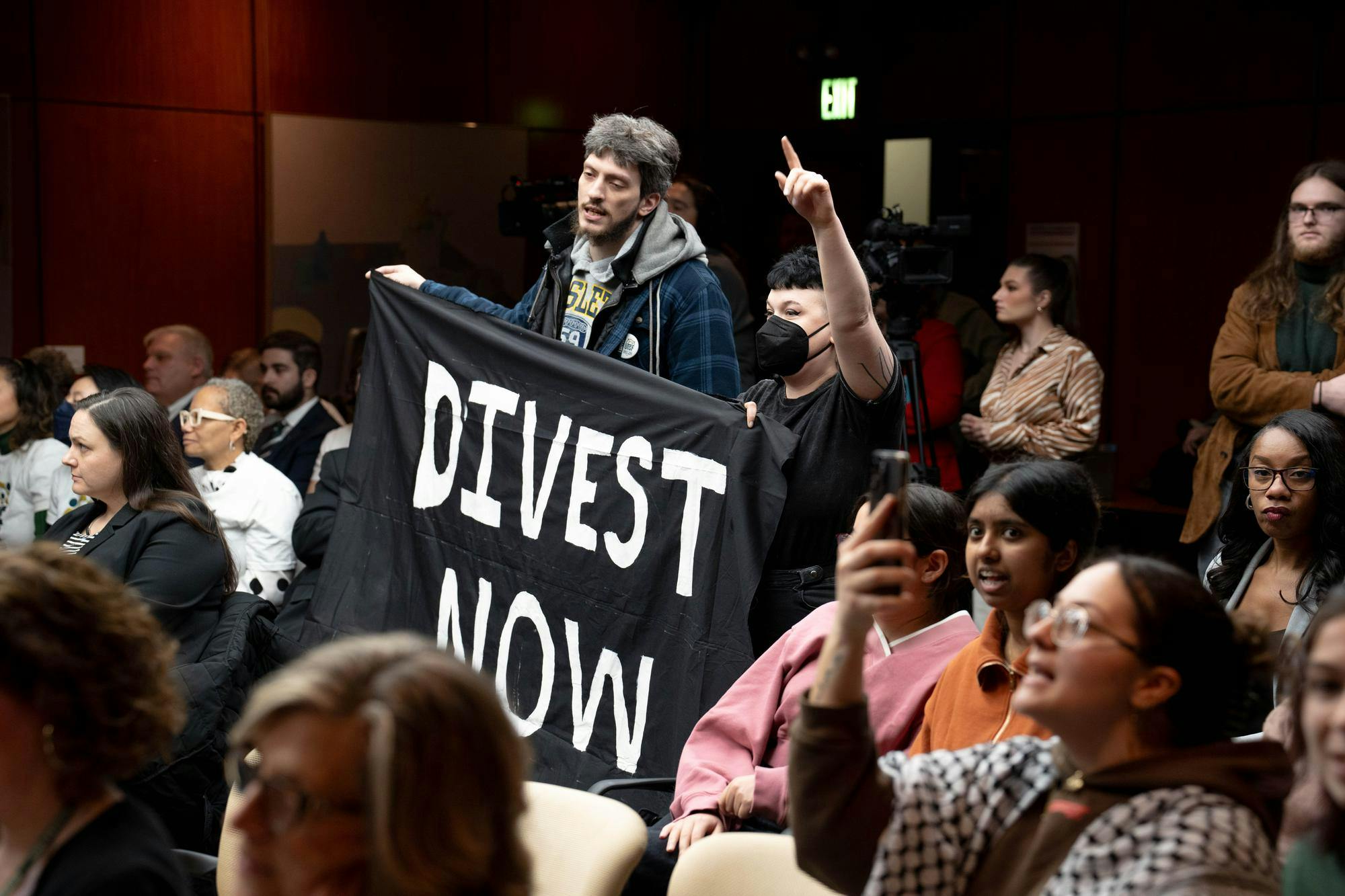Michigan State University's Faculty Senate voted no on a proposed resolution to advocate for MSU to “divest from all financial holdings that support and profit from Israel’s military campaign and plausible acts of genocide in the Gaza Strip” this afternoon.
Thirty-three voted no and 16 voted yes to the resolution, with some members instead promising to create a subcommittee to discuss MSU’s investments and potentially craft an alternative resolution instead.
“We fear (the resolution) will make Jews at MSU feel isolated, excluded and hated within campus culture,” Jewish Studies professor Kirsten Fermaglich said during the senate’s deliberations.
Other faculty members who spoke at the meeting said the resolution does not address violence committed by Hamas and would only pit MSU students against each other.
The decision is a marked departure from continued calls for divestment by student government groups and activists. Both MSU’s undergraduate student government ASMSU and the Council of Graduate Students passed resolutions advocating for divestment earlier this month.
As of June 30, 2023, MSU has $218.1 million invested in three BlackRock funds: BlackRock Emerging Companies, BlackRock Strategic and BlackRock Systematic China Absolute Return, according to the MSU list of investments. Advocates for divestment argue that those investments, alongside an additional $363.8 million invested in BNY Mellon, are funding weapons manufacturers involved in the Israel-Hamas war.
Additionally, MSU has $236,114 invested in Israeli aid as well as $479,006 invested in weapons manufacturer Lockheed Martin.
MSU spokesperson Mark Bullion said that while MSU does own U.S. treasury bonds issued to fund Israeli aid, “the university purchased these bonds in March 2023, well before the current conflict.”
The rejected resolution cited the International Court of Justice’s finding that it’s plausible that the state of Israel has committed acts of genocide in the Gaza Strip and a Human Rights Watch report that Israel is using starvation as a weapon of war against Gazans.
Professor Jennifer Goett said she’s seen the effects of that violence personally. Her husband, Waseem El-Rayes, who she said is Gazan, had family members killed by Israel’s bombardment.
“Twenty-seven of his relatives, ranging ages from two to 70, have been killed in Gaza,” Goett said. “Most died when Israel bombed their homes. Five were directly targeted for assassination.”
Others were shot by an Israeli drone as they searched through the rubble of their apartment building for their families, she said.
“My family's horror and trauma over this genocide are only amplified knowing that MSU, that our employer, has assets invested in entities that support and profit from the killing of Waseem's relatives,” Goett said. “U.S. weapons manufacturers, U.S. bombs, our taxpayer dollars and our university's investments are being used for genocide. It's time we say no, colleagues. Please vote for this resolution. Let's stand on the right side of history.”
Even if MSU did decide to pull out of the Israeli bond, doing so would be “chaotic,” Assistant Vice President of Financial Management Jeff Rayis told The State News in February.
Financial experts say the complex web of outside asset managers and contractually-bound investments put the university in a bind — without much control over its own endowment.
Some faculty members also said the proposed resolution would have a minuscule effect in Gaza. But Hannah Jeffrey, former president of COGS, said for the graduate students who approved their divestment resolution, it was a “moral issue.”
To craft another resolution that considers more perspectives from the MSU community, Business Professor Ayalla Ruvio suggested they create a “committee that will look at policy that will pertain to socially responsible investments of MSU.”
She encouraged other faculty members to contact her to join it.
Support student media!
Please consider donating to The State News and help fund the future of journalism.
Discussion
Share and discuss “MSU Faculty Senate votes no on Israel divestment” on social media.







